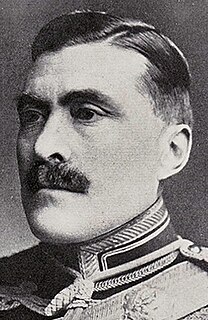 W
WLieutenant-Colonel Reginald Vincent Kempenfelt Applin, DSO, OBE was a British military officer who took a prominent part in the development of machine gun tactics in the British Army. He later entered politics, initially in two minor right wing parties before becoming a Conservative Party member of parliament.
 W
WDonald Boumphrey MC was an English cricketer, educator and British Army officer. As a cricketer, his batting and bowling styles are unknown, though, from his rehearsing in old age the feats he had performed as a young man, he was a right-handed batsman and a finger-spin bowler.
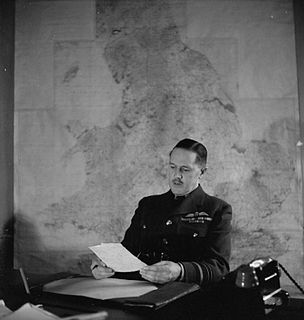 W
WAir Marshal Sir John Stanley Travers Bradley, was a senior Royal Air Force officer who became Air Officer Commanding-in-Chief RAF Maintenance Command.
 W
WMajor General Raymond Briggs CB DSO was a senior British Army officer who fought in both World War I and World War II. During the latter he led the 1st Armoured Division at the Second Battle of El Alamein in late 1942, and throughout the subsequent Tunisian Campaign.
 W
WGeneral Sir John Tredinnick Crocker, was a senior British Army officer who fought in both world wars. He served as both a private soldier and a junior officer in the First World War, and as a distinguished brigade, division and corps commander during the Second World War, where his most notable role was as General Officer Commanding (GOC) of I Corps during the D-Day landings on 6 June 1944, leading the corps throughout the subsequent campaign in Western Europe until Victory in Europe Day (VE-Day) just over eleven months later.
 W
WCaptain Albert Edgar Eberlin FRIBA MC was an architect based in Nottingham.
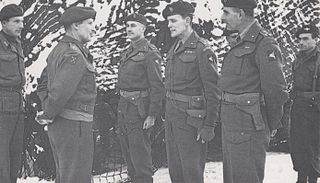 W
WBrigadier Edwin William Conquest Flavell DSO, MC & Two Bars was a British Army officer who served in both World War I and World War II. He served with great distinction during the latter, where he commanded the 1st Parachute Brigade in North Africa and the 6th Airlanding Brigade in Normandy, before becoming Deputy Chief of Staff HQ First Allied Airborne Army.
 W
WMajor John Alexander Fraser GC MC and Bar was a British colonial officer who was posthumously awarded the George Cross, the highest British award for bravery out of combat, for his "magnificent conduct" and "outstanding courage" in resisting Japanese torture during the Second World War.
 W
WGeneral Sir Richard Nelson "Windy" Gale, was a senior officer in the British Army who served in both world wars. In the First World War he was awarded the Military Cross in 1918 whilst serving as a junior officer in the Machine Gun Corps. During the Second World War he served with 1st Parachute Brigade and then the 6th Airborne Division during the D-Day landings and Operation Tonga in 1944. After the end of the conflict, Gale remained in the army and eventually, in 1958, succeeded Field Marshal The Viscount Montgomery as Deputy Supreme Allied Commander Europe.
 W
WHarry Gladwyn Harcourt, was an officer in the British Army and later the Australian Army who commanded an Australian commando unit during the Second World War.
 W
WField Marshal Allan Francis Harding, 1st Baron Harding of Petherton,, known as John Harding, was a senior British Army officer who fought in both the First World War and the Second World War, served in the Malayan Emergency, and later advised the British government on the response to the Mau Mau Uprising. He also served as Chief of the Imperial General Staff (CIGS), the professional head of the British Army, and was Governor of Cyprus from 1955 to 1957 during the Cyprus Emergency.
 W
WMajor Allan Ebenezer Ker VC was a Scottish recipient of the Victoria Cross, the highest and most prestigious award for gallantry in the face of the enemy that can be awarded to British and Commonwealth forces.
 W
WDavid Stuart McGregor VC was a Scottish recipient of the Victoria Cross, the highest and most prestigious award for gallantry in the face of the enemy that can be awarded to British and Commonwealth forces. A soldier with The Royal Scots during the First World War, he was posthumously awarded the VC for his actions on 22 October 1918, during the Hundred Days Offensive.
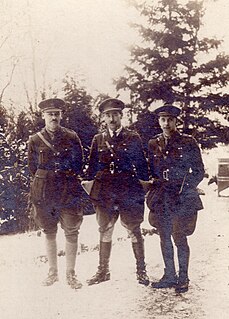 W
WRobert Edwin Newbery MC (1884–1967) was one of the two founding partners of Dale and Newbery, the firm of solicitors that has had offices in Southeast England since 1911. He also co-invented the internal triple air flow regulator for the oil burning lamp, which widened the flame for increased light emittance.
 W
WWyndham Raymond Portal, 1st Viscount Portal,, was a British politician.
 W
WJames Scott Cumberland Reid, Baron Reid, was a Scottish Unionist politician and judge. His reputation is as one of the most outstanding judges of the 20th century.
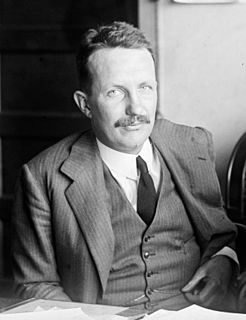 W
WKermit Roosevelt, MC was an American businessman, soldier, explorer, and writer. The son of Theodore Roosevelt, the 26th President of the United States, Kermit was a graduate of Harvard College, served in both World Wars, and explored two continents with his father. He fought a lifelong battle with depression and committed suicide while serving in the U.S. Army in Alaska during World War II.
 W
WLieutenant-Colonel Graham Seton Hutchison was a Scottish First World War army officer, military theorist, author of both adventure novels and non-fiction works and fascist activist. Seton Hutchison became a celebrated figure in military circles for his tactical innovations during the First World War but would later become associated with a series of fringe fascist movements which failed to capture much support even by the standards of the far right in Britain in the interbellum period. He made a contribution to First World War fiction with his espionage novel, The W Plan.
 W
WPercy Wyfold Stout DSO, OBE was an English international rugby union wing who played club rugby for Gloucester and Richmond. Stout also played international rugby for England, playing five matches between 1898 and 1899.
 W
WMajor General George William Symes, was a senior British Army officer who served in the First World War, in which he was twice awarded the Military Cross. During the Second World War he commanded the 70th Infantry Division in India, and was deputy commander of the Special Force, commonly known as the Chindits, in Burma. He was Deputy Commander of the lines of communication of the 21st Army Group from May to November 1944, and then commanded the lines of communication in South East Asia Command (SEAC). In June 1945, he became General Officer Commanding (GOC) in Southern Burma.
 W
WArnold Sandwith Ward (1876–1950) was an English journalist and Conservative Party politician. He served as the MP for the constituency of Watford between 1910 and 1918.
 W
WHenry William Williamson was an English author who wrote novels concerned with wildlife, English social history and Ruralism. He was awarded the Hawthornden Prize for literature in 1928 for his book Tarka the Otter.
 W
WMajor-General Douglas Neil Wimberley, was a British Army officer who, during the Second World War, commanded the 51st (Highland) Division for two years, from 1941 to 1943, notably at the Second Battle of El Alamein, before leading it across North Africa and in the Allied campaign in Sicily.